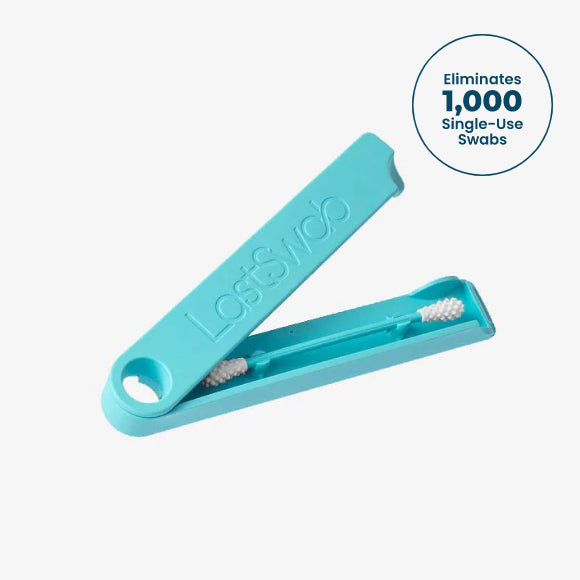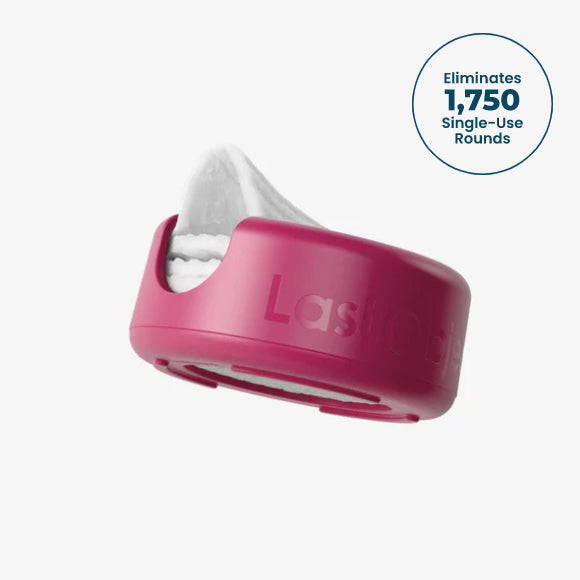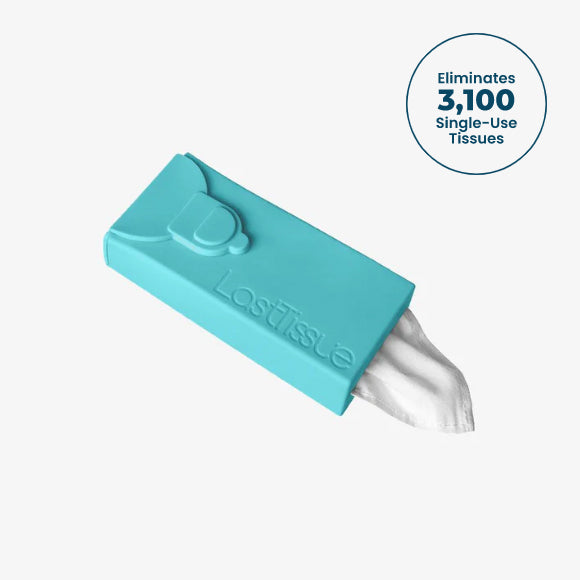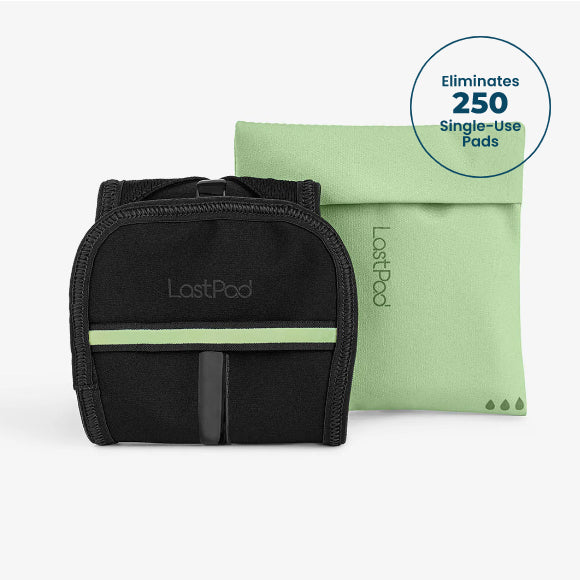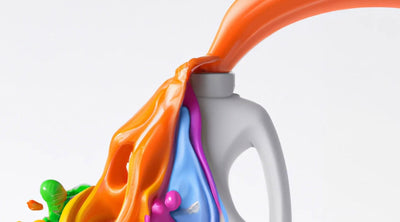Mindless Consumption: What Is It & How Can We Reduce It?
September 08, 2021All across the world, people continue to purchase products at an ever-increasing rate. As this happens, the amount of waste we are producing also continues to grow. In 2018, the United States generated 292.4 million tons of waste. This was around 23.7 million tons more than was produced in 2017 and around 84 million more than in 1990. Other countries have experienced similar trends, which clearly demonstrate how our consumptive habits are an escalating threat to the planet’s wellbeing.
A new concept has recently emerged to help explain this problematic dynamic. ‘Mindless consumption’ is an idea that focuses attention on our buying habits. It does this to encourage people to avoid excess, unnecessary purchases. We live in a world where consumers are encouraged to purchase products on a whim and it’s often done without considering the impacts of these habits. By becoming aware of mindless consumption, people can curtail environmentally damaging behaviors.
The following article takes a deep dive into mindless consumption to break down its overall drawbacks and then provides useful tips you can apply to your everyday life to become a more mindful consumer.

What Is Mindless Consumption?
Mindless consumption is the excessive purchasing of products without considering their life cycle. It’s a growing problem that is being accelerated by social media and online marketplaces, which serves to propel issues like fast fashion and the overarching consumer culture. Ultimately, it leads to the same outcome — environmental devastation that we may not even be aware of at the point of purchase.
For instance, some companies engage in ‘greenwashing’. This occurs when brands falsely present products as being environmentally friendly. Shoppers then purchase these items without knowing the full ecological impact.
Beyond the harm that mindless consumption causes the planet, it can also be damaging to the individual consumer. When you become caught-up in this dynamic, your whole perspective can become warped. You may see others who have bought the newest “big thing” on social media and inadvertently become crippled with envy. It can result in a fear of missing out. This compulsion to impress others and keep up with the trends often comes with less contentment, less money and a lot more stress. The reason for this? You can’t buy happiness.
Am I A Mindless Consumer?
Now that we have established what mindless consumerism is, let’s apply the concept to your own life. It’s very easy to establish where you sit on the scale. Examine the following list, and consider how often you engage in these practices:
- You frequently go shopping without having a specific item in mind. Often this is to alleviate boredom.
- You spend hours every week browsing shops, and consider this to be a hobby or pastime.
- You struggle to shop within your means, spending more than you earn. This leads to you running out of money well in advance of your payday.
- You shop for new clothes even though you’re aware that you don’t have enough room for the ones you already own.
- You find yourself buying things just because they are on sale, regardless of whether you need them or were looking for them.
- You make a lot of purchases on your credit card, because you buy them spontaneously and so have not saved up money in advance.
Be honest with yourself. Think about whether these are accurate descriptions of your behavior. Do you find yourself compulsively shopping? Do you often feel regret about your purchases? If so, you are most likely engaging in mindless consumption. But don’t feel disheartened, as there are practical ways to change your behavior.

How To Reduce Mindless Consumption In Your Life
Here are some handy tips for becoming a mindful consumer. These simple steps help the planet and put you in a better position to increase your own happiness too.
Reevaluate your priorities. Learn to be content with what you have
Spend some time evaluating your life. What are the things you care about most? Are you expending your time and efforts on the things that you really value? Or are you focusing your energy on trying to keep up with the purchases and lifestyles of others? Buying products just because your social circles or celebrities own them won't bring you happiness. If you already own an item you really like, that’s still in good condition, there’s no reason to buy another one. Learn to be content with what you already own, and suffocate your envy. Identify your true needs before pressing “add to cart”.
Look for happiness in experiences not things
Valuing experiences over material goods is an effective way to avoid mindless consumption. This is probably going to be easier than you think. Look back over your life, and pick out the parts that have meant the most to you. It’s likely that very few things coming to mind are products you bought. Rather, you’re likely thinking of holidays with family members, unforgettable time treasured friends, and shared moments with the people you love. This is because these experiences are more important than any product you’ve ever bought. Keeping this front of mind makes it much easier to stop trying to seek happiness in shopping.
Learn to recognize the difference between needs and wants
Our buying behavior should be primarily based on needs, rather than wants. Learning to differentiate between these two is important for mindful spending. Focusing on the things you need delivers many more benefits including:
- Reducing the amount of unnecessary clutter in your home
- Helping you to save more
- Lowering your carbon footprint and easing pressure on the environment
Find better hobbies than shopping
Hobbies can be a great way to spend your spare time. They can help you develop new skills, become more cultured, meet new friends, or even be a good source of exercise. Shopping, however, doesn’t add much value besides short-term pleasure triggered by the release of dopamine to the brain.
Find pastimes that enrich your life, build character and can add to your general long-term happiness where possible.
Use a capsule wardrobe
An effective way of buying less is to make better use of what you already own. In regard to your clothes, this can be aided by using a capsule wardrobe. It means having a sufficient collection of outfits already prepared, then only purchasing new clothes when existing items need replacement. Make sure you buy quality clothes that last, though, and always look to avoid fast fashion.
Stick to your shopping list
Avoid going shopping without a clear idea of what you intend to buy, wherever possible. Heading out without a plan increases the likelihood of you making unnecessary purchases on a whim. To make things easier on yourself, draw up a shopping list of all the items you need to buy. Then while you’re shopping, stick to the list as much as possible to start becoming a more mindful consumer.
Wait 24-48 hours before making a purchase
Another way of becoming a more mindful consumer is to pause before you make any purchase. Wait a day or two and think hard about how much you need the product. Will it just become another unused item gathering dust in your home? By forcing yourself to really assess each purchase, you can quickly reduce your spending on things you really don’t need.
Make the process of purchasing items more difficult for yourself
Ensure that it’s as inconvenient as possible for you to buy new items. For example, remove your credit card details from all online markets. This way, you’ll have to manually input your details each time you want to make a purchase. The trickier it is to finalize an order, the less inclined you’ll be to buy new things.
In addition to this, implement certain ground rules for purchasing. Give yourself a strict weekly budget for shopping, and never exceed this unless it’s for an essential that can’t wait until the following week.
Increase your savings and begin investing
By setting out clear financial goals, you’ll be less inclined to shop spontaneously. Try growing your savings, investing your money, or saving for a house. This will change your relationship with your finances. You’ll enjoy watching your money grow as you progress towards your goals. As a result, you’ll be much less likely to waste money on impulse purchases.
Ignore adverts and sales promotions
Adverts have grown increasingly catchy and engaging. What’s more, shops always seem to have all sorts of promotions on. But just because a product is on sale, it doesn’t mean you should buy it. Do your best to ignore offers and marketing campaigns. Remember, your focus should primarily be on buying what you need!

Become More Mindful Of Your Consumption Habits
We’ve become accustomed to only looking at the sticker price without accounting for the hidden costs that come with every purchase. This is contributing to the proliferation of mindless consumption and putting even more pressure on an already floundering environment. Before your next shopping spree, remember that it costs time, energy, and focus, which could all be directed towards something more beneficial to your life.
By applying some of the practical tips above, you can quickly start turning into a more mindful consumer. It will help you declutter, save more, minimize your carbon footprint, and can even lead to better overall wellbeing.
MORE Sustainability 101 ARTICLES View all ›
Ready to make
the switch?
- Powerful Cleaning
- Dissolves Easily
- Skin-Friendly
- Eco-Friendly
- No Mess





